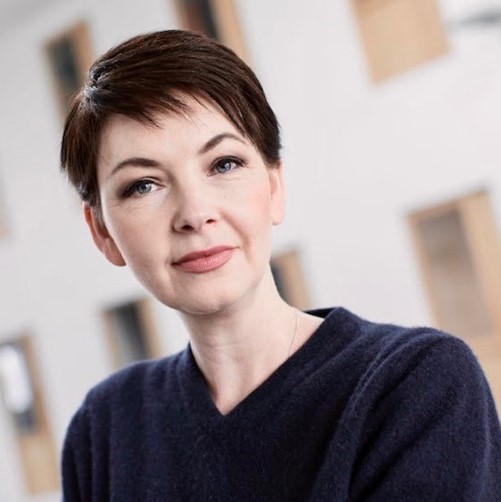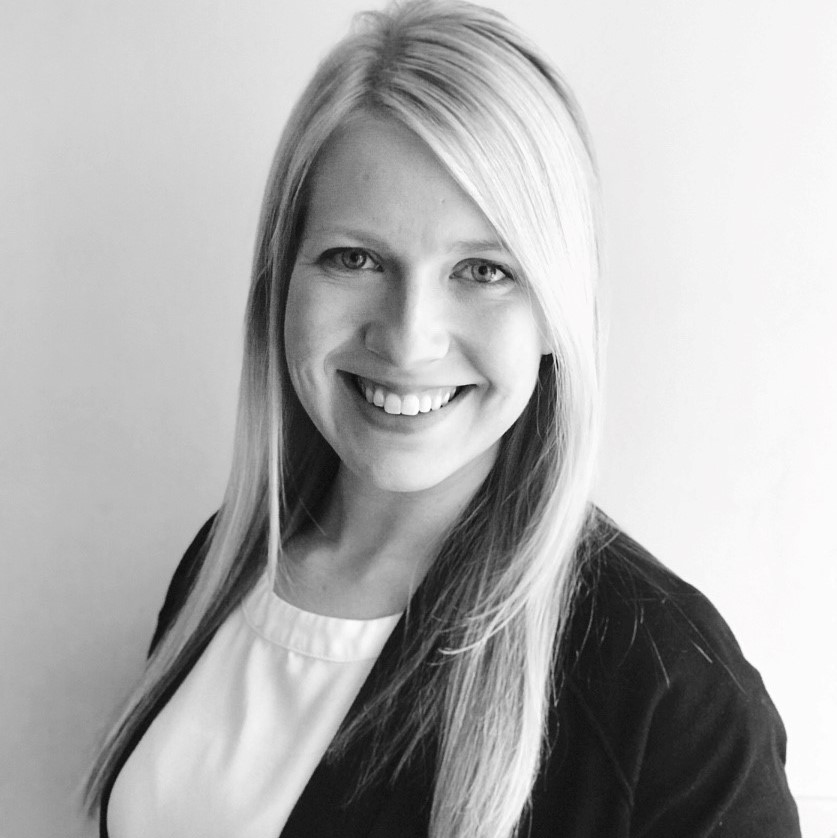|
|
| Invited Workshop: Process-Based Behavior Therapy (PBBT): Why a New Behavior Therapy was Needed |
| Thursday, September 1, 2022 |
| 1:00 PM–2:50 PM |
| Meeting Level 1: Liffey B |
| Area: CBM; Domain: Theory |
| Chair: Deisy das Graças De Souza (Universidade Federal de São Carlos) |
| CE Instructor: Yvonne Barnes-Holmes, Ph.D. |
| Presenting Author: YVONNE BARNES-HOLMES (Ghent University) |
| Abstract: It is not easy for any form of psychotherapeutic intervention or regime to stay close to laboratory-generated processes. Indeed, there are few, if any, examples of where this is genuinely the case. Clinicians struggle daily with the fact that basic psychological research has not clearly identified the processes they should be targeting for lasting change of complex human behavior. However, recent developments in Relational Frame Theory (RFT) have now provided us with a sound account and evidence of a core complex behavioral process that clinicians can work with in a precise and effective way. This process of arbitrarily applicable relational responding, and the ROE (relating, orienting, and evoking) as its basic unit, have fundamentally changed what can be achieved through behavior therapy. Finally, a legitimate form of process-based behavior therapy is available to clinical behavior analysts who wish to work with complex clients. This talk will explore how Process-Based Behaviour Therapy (PBBT) does exactly that. |
| Instruction Level: Basic |
| Target Audience: Any member with Masters-level training in behavioral science. |
| Learning Objectives: 1. Attendees will be able to describe RFT’s concept of the ROE (relating, orienting, and evoking) as the basic unit of the core process of arbitrarily applicable relational responding. 2. Attendees will be able to integrate the ROE with PBBT, in terms of how the therapy uses the basic unit to understand complex clinical behavior. 3. Attendees will be able to understand how PBBT interventions change obstructive behavioral patterns. |
| |
| YVONNE BARNES-HOLMES (Ghent University) |
 Dr. Yvonne Barnes-Holmes has been a highly successful academic and clinician with a strong track record in teaching, training, publishing and presenting for the last 20 years. She has published over 150 scientific articles and book chapters and given over 500 presentations and workshops internationally. She was an Associate Professor in Behavior Analysis and a Senior Research Fellow at Ghent University before establishing Perspectives Ireland Consulting Psychologists Ltd. She is the Co-Developer of Process-Based behavior Therapy (PBBT). Dr. Yvonne Barnes-Holmes has been a highly successful academic and clinician with a strong track record in teaching, training, publishing and presenting for the last 20 years. She has published over 150 scientific articles and book chapters and given over 500 presentations and workshops internationally. She was an Associate Professor in Behavior Analysis and a Senior Research Fellow at Ghent University before establishing Perspectives Ireland Consulting Psychologists Ltd. She is the Co-Developer of Process-Based behavior Therapy (PBBT). |
|
| |
| |
|
|
| Invited Workshop: Using Precision Teaching to Ensure Fluency of Key Academic Skills: Introduction to and Refresher of Strategies and Techniques |
| Thursday, September 1, 2022 |
| 3:30 PM–5:20 PM |
| Meeting Level 1: Liffey B |
| Area: EDC; Domain: Service Delivery |
| Chair: Julian C. Leslie (Ulster University) |
| CE Instructor: Claire McDowell, Ph.D. |
| Presenting Authors: CLAIRE MCDOWELL (Ulster University, Coleraine), CATHERINE STOREY (Queen's University Belfast) |
| Abstract: This workshop is designed for those who are new to Precision Teaching and want to learn how to use it to improve their learning and teaching practice, or for those who already have a good working knowledge but who want to refresh their skills. We will take you through the underpinning science behind the approach and teach participants how to design instruction and practice opportunities that allow learners of all levels to build key skills to fluency. A combination of slides and hands-on practical activities will be utilized throughout the workshop |
| Instruction Level: Basic |
| Target Audience: Individuals new to Precision Teaching |
| Learning Objectives: At the end of the workshop, participants will be able to: (1) List and describe the key principles and strategies of Precision Teaching; (2) Create free operant learning environments; (3) Describe a learning channel analysis; (4) Chart performance using the Standard Celeration Chart (SCC); (5) Identify and describe learning pictures and how they can be used to signal and direct instructional changes |
| |
| CLAIRE MCDOWELL (Ulster University, Coleraine) |
 Dr Claire McDowell (BCBA-D) is a Lecturer in Behaviour Analysis in the School of Psychology at Ulster University. Following a period of study at Ulster University and Ohio State University under the mentorship of John Cooper and Ogden Lindsey, Claire worked in the area of special education since 2003 when she was Educational Director of The Saplings ABA School Outreach Services in the Republic of Ireland. She then became a lecturer on the first verified course sequence in the north of Ireland, where she continues to teach at undergraduate, masters and PhD level. Her research focuses on using ethical and evidenced based practice to improve educational outcomes for at-risk learners and improving health, social skills and quality of life for individuals with intellectual disabilities and their families. Dr Claire McDowell (BCBA-D) is a Lecturer in Behaviour Analysis in the School of Psychology at Ulster University. Following a period of study at Ulster University and Ohio State University under the mentorship of John Cooper and Ogden Lindsey, Claire worked in the area of special education since 2003 when she was Educational Director of The Saplings ABA School Outreach Services in the Republic of Ireland. She then became a lecturer on the first verified course sequence in the north of Ireland, where she continues to teach at undergraduate, masters and PhD level. Her research focuses on using ethical and evidenced based practice to improve educational outcomes for at-risk learners and improving health, social skills and quality of life for individuals with intellectual disabilities and their families. |
| CATHERINE STOREY (Queen's University Belfast) |
 Dr Catherine Storey (BCBA-D) is a Lecturer in Behaviour Analysis, Queen’s University Belfast. Catherine has worked in the Autism field since 2009 across a range of settings; home programs, special education settings and now, teaching ABA on a verified course sequence. Catherine’s research is conducted across two interconnected themes: Applied Behaviour Analysis and improving educational outcomes for at-risk groups of learners. Her research to date has focused on the role behaviour analysis plays in the development of educational technologies, evaluating educational technologies, video-based interventions, promoting positive social behaviour in children with ASD and the social validity of interventions for Autistic people. Catherine is particularly focused on how we can continue to use the wealth of evidence in support of behaviour analysis, to inform policy and practice and how we can engage stakeholders (educational leaders, teachers, clinicians, parents/guardians, individuals with ID, autistic individuals) at the early stages of research planning to ensure that the work that we do as behaviour analysts provides the most benefit, to the most people. Dr Catherine Storey (BCBA-D) is a Lecturer in Behaviour Analysis, Queen’s University Belfast. Catherine has worked in the Autism field since 2009 across a range of settings; home programs, special education settings and now, teaching ABA on a verified course sequence. Catherine’s research is conducted across two interconnected themes: Applied Behaviour Analysis and improving educational outcomes for at-risk groups of learners. Her research to date has focused on the role behaviour analysis plays in the development of educational technologies, evaluating educational technologies, video-based interventions, promoting positive social behaviour in children with ASD and the social validity of interventions for Autistic people. Catherine is particularly focused on how we can continue to use the wealth of evidence in support of behaviour analysis, to inform policy and practice and how we can engage stakeholders (educational leaders, teachers, clinicians, parents/guardians, individuals with ID, autistic individuals) at the early stages of research planning to ensure that the work that we do as behaviour analysts provides the most benefit, to the most people. |
|
| |
| |
|
|
| International Credentialing and Education Discussion |
| Thursday, September 1, 2022 |
| 5:40 PM–6:30 PM |
| Meeting Level 1: Liffey B |
| Area: PCH/EDC; Domain: Translational |
| Chair: Michelle Ellen Kelly (National College of Ireland ) |
| Panelists: JENNA MRLJAK (Association for Behavior Analysis International), MARGUERITE HOERGER (Bangor University) |
| Abstract: Attendees are invited to join panelists for a discussion of international credentialing and ABAI's Tiered Model of Education. The discussion will include recent developments in the United Kingdom including the coursework standards and higher-education system, a unique competency-based supervision system, and an ethics code. The discussion will also address how behavior analysts are working within the professional landscape and legal requirements within Ireland. We invite those interested in learning more about the recent developments in higher education and how regions are moving forward with new standards, models, and regulations to aid in the professional development of behavior analysts. Attendees are welcome to share information on how other countries (i.e., those not represented on the panel) are adapting to credentialing and professional development! |
| Instruction Level: Basic |
| JENNA MRLJAK (Association for Behavior Analysis International) |
 Jenna Mrljak is a doctoral-level behavior analyst and holds BCBA certification. She earned her Ph.D. in behavior analysis from Western Michigan University under the advisement of Dr. Richard Malott. She taught and supervised several undergraduate and graduate behavior analysis courses and gained experience in behavioral systems analysis. She provided BCBA supervision in early childhood special education classrooms and worked with children with autism and other developmental disabilities. Her interests span many areas including early intervention, instructional design, education, technology, behavioral systems analysis, and social justice. She is dedicated to researching and delivering high-quality educational programs for all learners. Currently, she is the Director of Education at the Association for Behavior Analysis International (ABAI). She helps manage the Accreditation and VCS Boards, which also includes supporting a few hundred behavior analysis training programs worldwide. Jenna Mrljak is a doctoral-level behavior analyst and holds BCBA certification. She earned her Ph.D. in behavior analysis from Western Michigan University under the advisement of Dr. Richard Malott. She taught and supervised several undergraduate and graduate behavior analysis courses and gained experience in behavioral systems analysis. She provided BCBA supervision in early childhood special education classrooms and worked with children with autism and other developmental disabilities. Her interests span many areas including early intervention, instructional design, education, technology, behavioral systems analysis, and social justice. She is dedicated to researching and delivering high-quality educational programs for all learners. Currently, she is the Director of Education at the Association for Behavior Analysis International (ABAI). She helps manage the Accreditation and VCS Boards, which also includes supporting a few hundred behavior analysis training programs worldwide. |
| MARGUERITE HOERGER (Bangor University) |
 Dr. Maggie Hoerger, BCBA-D is a Senior Lecturer in the School of Education at Bangor University, where is she the course director of the MSc in Applied Behaviour Analysis. Her research interests and practice include working with school leaders and teachers to integrate behaviour analysis into maintained schools. She works with Local Authorities, SEN schools, and Pupil Referral Units to establish universal behaviour analysis provision with an emphasis on early years teaching and functional based interventions. The work has been funded by the Welsh Government. Maggie is currently serving as the President of the UK Society for Behaviour Analysis. Dr. Maggie Hoerger, BCBA-D is a Senior Lecturer in the School of Education at Bangor University, where is she the course director of the MSc in Applied Behaviour Analysis. Her research interests and practice include working with school leaders and teachers to integrate behaviour analysis into maintained schools. She works with Local Authorities, SEN schools, and Pupil Referral Units to establish universal behaviour analysis provision with an emphasis on early years teaching and functional based interventions. The work has been funded by the Welsh Government. Maggie is currently serving as the President of the UK Society for Behaviour Analysis. |
|
| |